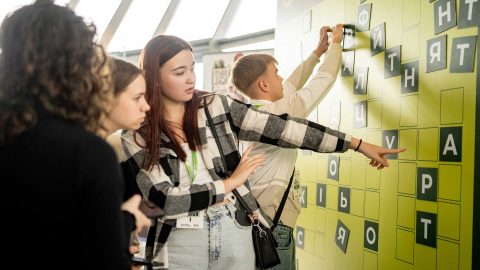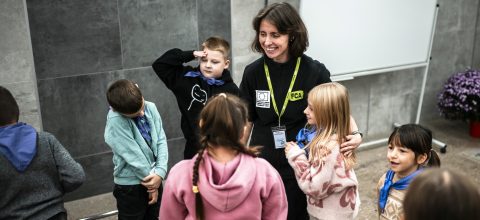“I literally jumped for joy”: FCA summer camp offers healing and hope for children affected by war in Ukraine
For children growing up in the war-affected Kharkiv region of eastern Ukraine, education has been disrupted, friendships scattered, and daily life overshadowed by fear. This summer, a week-long camp in western Ukraine offered them something different — a safe space to learn, recover, and simply be teenagers again.
FOR 148 STUDENTS, seven days in the historical Chernivtsi region were not just a camp — they were a chance to step out of the shadow of war, catch up on learning, and rediscover the joy of being together.
Organised by Finn Church Aid (FCA) with the support of the Finnish private Pirkko and Tarmo Vahvelainen Foundation, the camp combined academic learning with psychosocial support and recreation. For the students from Regional Scientific Lyceum “Obdarovanist,” it both bridged education gaps caused by displacement and disrupted schooling and supported the emotional recovery of children who have grown up amidst constant uncertainty. For young people from the front-line Kharkiv region, the experience was nothing short of transformative.
As one student summed it up:
“Here I could laugh, study, and just be myself.”
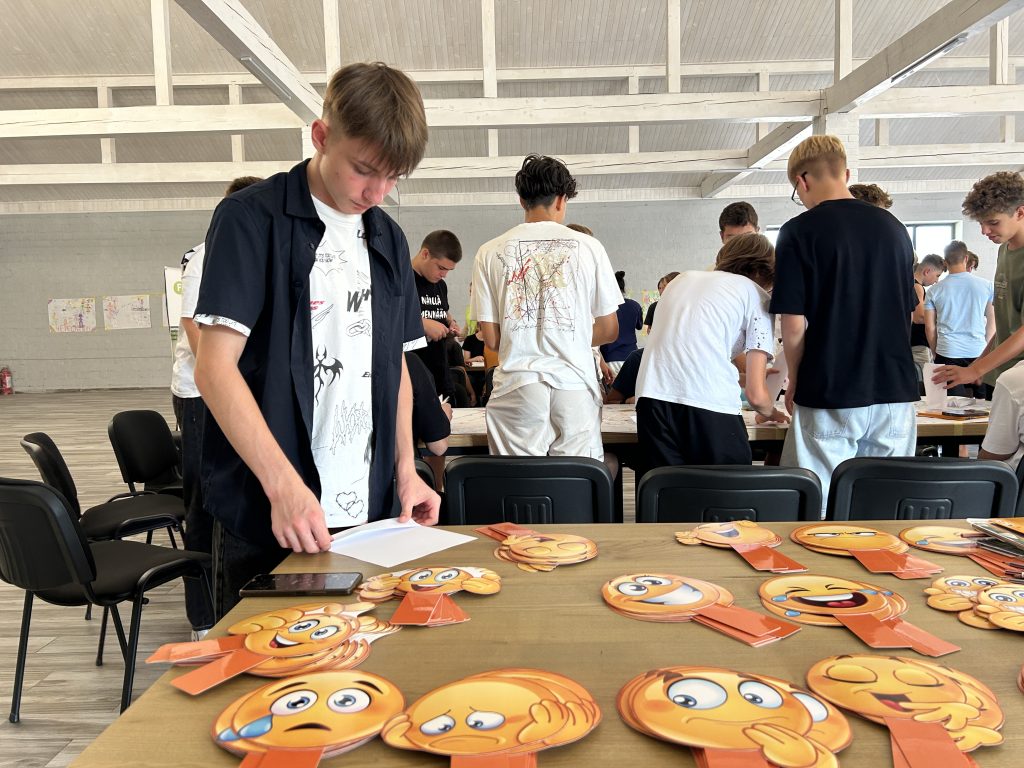
A school community under pressure
The Kharkiv Regional Scientific Lyceum “Obdarovanist” is one of the region’s leading schools, bringing together academically talented students from across Kharkiv and beyond. Yet the war has deeply affected both the school and its students. Many have been displaced, some spent months under occupation, and all have faced the instability of remote or hybrid learning.
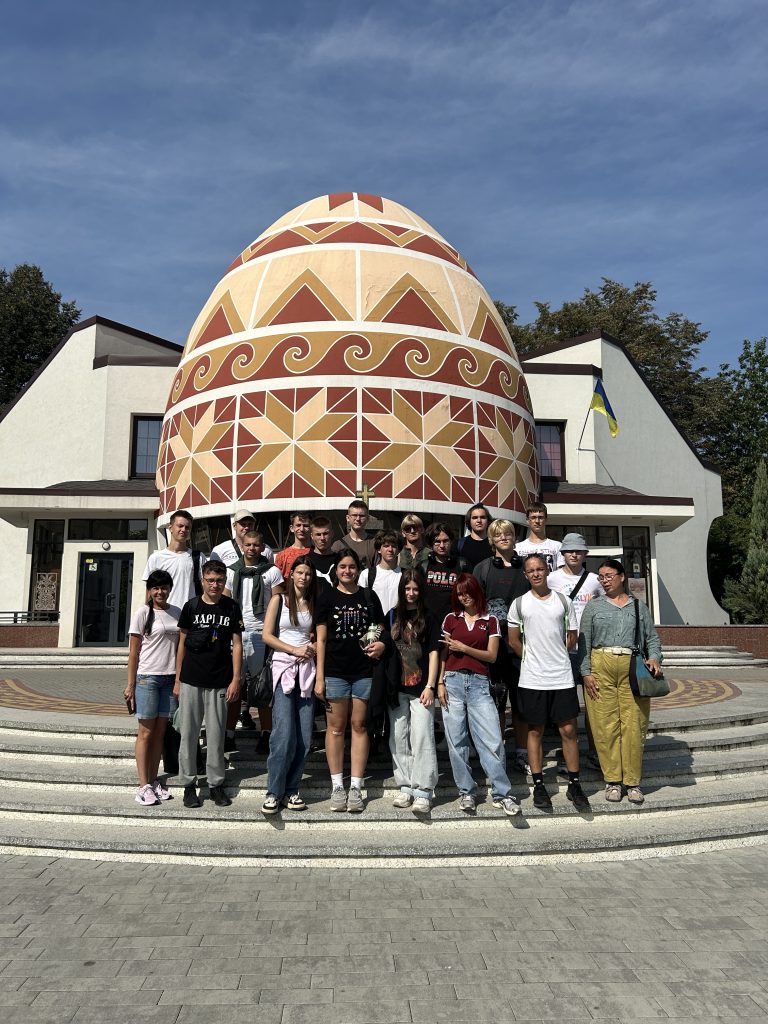
Valerii Polyvanyi, the school’s director, emphasised the importance of creating spaces where students can meet in person again:
“The greatest value of this camp is that it brings our students together. For years, we hardly saw them. Now, they can learn, communicate, and feel part of a school community again. The fact that over a hundred families registered within minutes shows how much this is needed.”
Before the war, the lyceum offered specialised field practice for each academic profile: biologists travelled to research stations, mathematicians to university laboratories, and younger students prepared for exams. Since 2022, such opportunities became impossible. FCA’s camp restored this tradition in a new way — by uniting students from all grades, giving them both intensive learning and a chance to reconnect socially.
Learning and healing together
The camp’s programme combined STEM (Science, Technology, Engineering and Mathematics) lessons in mathematics, physics, chemistry, biology and IT with personal development workshops, sports, cultural excursions, and psychosocial support sessions. The approach was intentional: to recognise that education and well-being go hand in hand.
For many, this balance was critical. Kyryl, 16, studies in the physics and mathematics track. He remembers the excitement when he learned the camp would take place again:
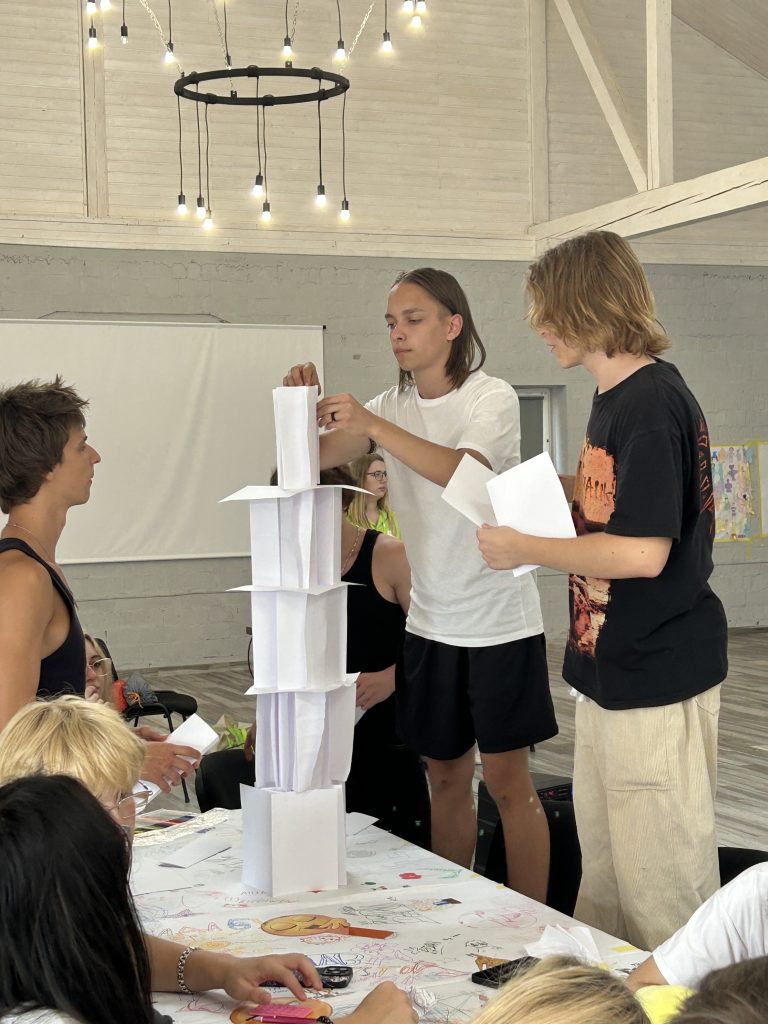
“When I learned the camp would happen again, I literally jumped with joy. Here I feel calm and free to express myself. The psychosocial sessions gave me confidence, and team challenges helped me discover my own leadership.”
One activity asked students to build the tallest possible tower out of paper. Kyryl’s idea became the winning solution. For him, the exercise was more than a game — it was a chance to practise collaboration, problem-solving, and leadership in an environment where his voice was heard and valued.
Reconnecting with community
For Illia, 16, who studies in the biology and chemistry track, the camp was not only about catching up on academics but also about regaining social skills after months of isolation. He had lived under occupation in his home village before joining the lyceum and knew what it meant to be cut off from peers.
“When you stay at home too long, you lose social skills. Online you cannot share emotions the way you do face to face,” Illia explained.
At the camp in Chernivtsi, he reunited with classmates and took part in psychosocial sessions that helped him manage anxiety.
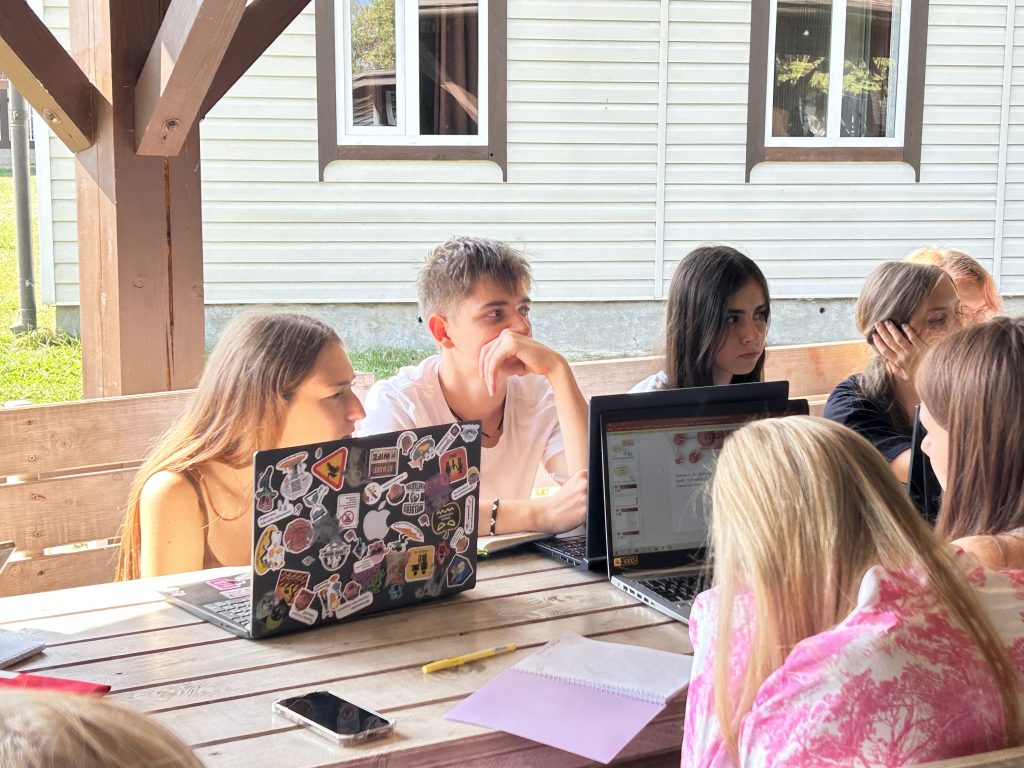
“They taught me to manage stress and realise it is not as frightening as it seems. Most importantly, they showed me that I am not alone with my feelings.”
For Illia, the combination of STEM lessons, sports, and psychosocial support offered exactly the balance he needed to feel stronger and more connected.
Support for teachers too
The camp also had an impact on teachers, many of whom work under the constant strain of air raid sirens and hybrid education systems.
Iryna Petrenko, who has taught physics and mathematics at the lyceum for over three decades, described both the challenges and the relief the camp provided:
“For children from Kharkiv, simply being in nature without sirens is already healing. The camp combined learning with emotional recovery — something we all, teachers included, needed deeply.”
She explained that stress has affected students’ concentration and memory. Even high-achieving pupils sometimes struggle to retain knowledge learned online. Being together in person allowed teachers to identify gaps, provide direct support, and restore students’ confidence. For the teachers themselves, the camp was also a source of renewal. “We work with the children, but we also recharge emotionally. It gives us strength to continue,” she added.
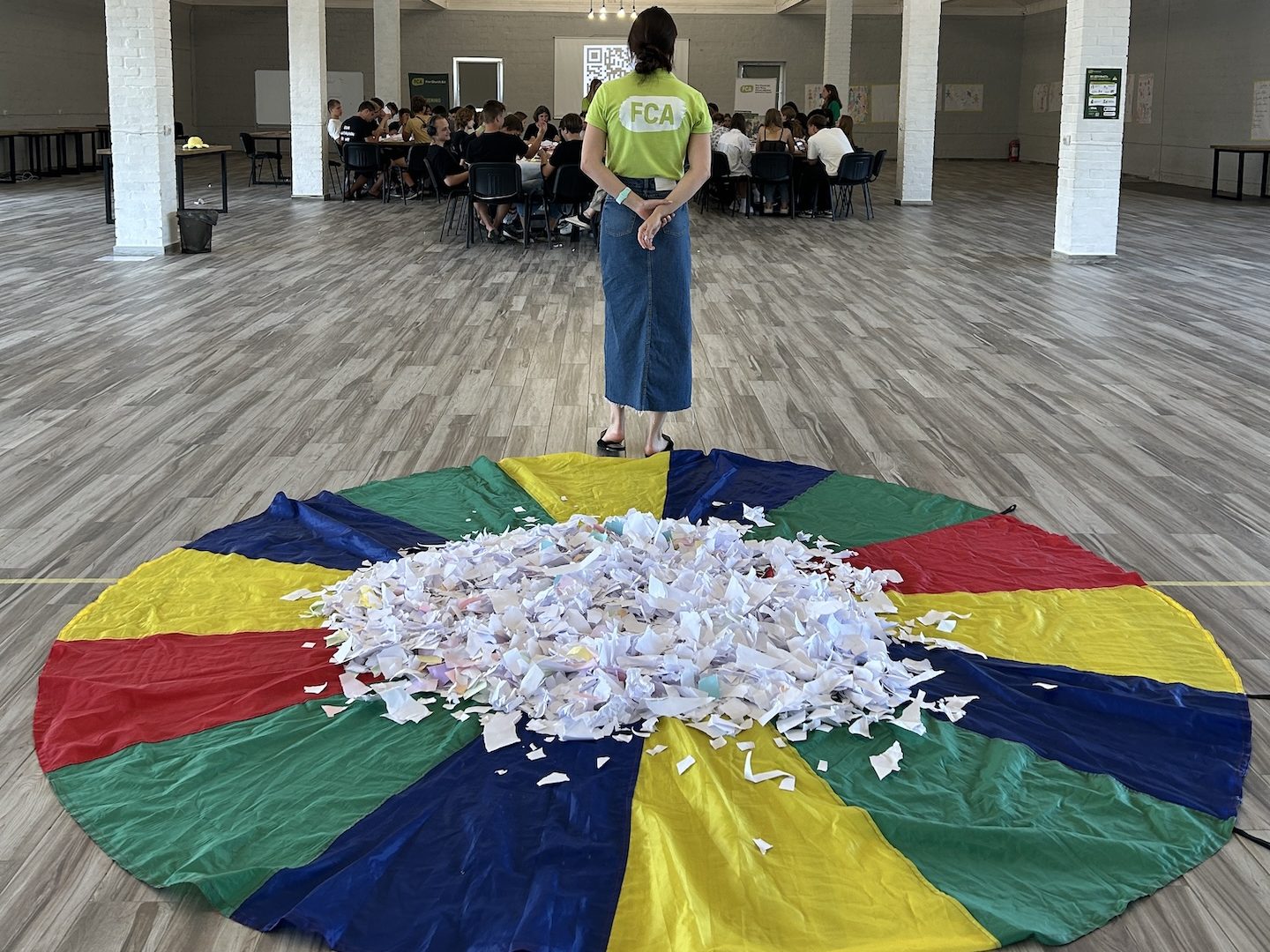
A safe space for growth
For the students of “Obdarovanist,” the camp was not only about catching up academically. It was also about reclaiming a sense of normal teenage life — studying, laughing, playing, and simply being together without fear.
As Director Valerii put it, “The camp is not just practice. It is rest, recovery, and joy. It reminds children that life is bigger than the war.”
Thanks to FCA and the support of the Vahvelainen Foundation, the summer camp created a safe and nurturing space amid ongoing conflict. For young people who have lost so much, this experience offered hope and resilience for the future.
—
Text and photo: Veronika Korobko, FCA Ukraine

